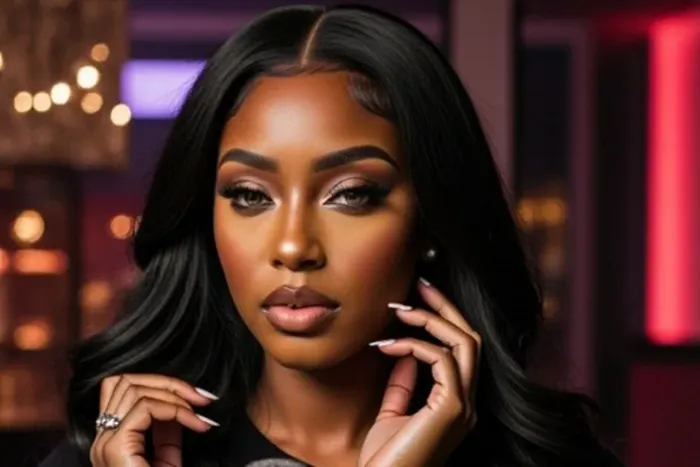
Kehlani and SZA have openly criticised AI-generated artist Xania Monet, who recently secured a multimillion-dollar record deal, questioning the implications for human creativity and the future of the music industry.
Image: Xania Monet
I have been following the rise of AI in music with both curiosity and concern.
While some AI-generated songs impress me - one has stayed on repeat in my playlist - the growth of this technology raises important issues for traditional musicians.
Despite AI music’s growing popularity and commercial success, the challenges it poses to traditional artists are becoming impossible to ignore.
As technology advances, questions arise about its impact on creativity, fairness and the music industry as a whole. Some artists experiment with AI, exploring its possibilities, while others speak out against its growing influence.
Recently, Kehlani and SZA addressed AI artist Xania Monet and the multimillion-dollar deal she secured. Monet is an AI R&B artist created by Talisha “Nikki” Jones, a designer and poet from Mississippi.
Jones feeds her own poetry into AI music-making platforms, transforming it into R&B tracks.
Reports indicate that around 90 percent of the lyrics come from her personal experiences. The results closely resemble traditional R&B, gaining attention on charts, streaming platforms and within the industry.
Monet’s deal with Hallwood Media, founded by former Interscope executive Neil Jacobson, has become a headline story.
Reports suggest that multiple parties bid up to $3 million (R50 million) before Hallwood secured the contract. For a project without a human performer, the figure is unprecedented.
Monet’s single “How Was I Supposed to Know” reached number one on Billboard’s R&B Digital Song Sales chart.
Streaming numbers are approaching 10 million, with more than half of that total generated in a single week.
Plans for live performances are being discussed, though the logistics remain unclear. Publishing rights are also reportedly under negotiation.
Kehlani was among the first to speak out, calling the deal unfair. She argued that AI artists do not perform the creative work that human musicians do.
“There is an AI R&B artist who just signed a multi-million dollar deal and has a top five R&B album, and the person is doing none of the work,” she said.
“I think you guys think that AI can just be the cover for something, which some people can use. They can make an AI cover.”
She continued, explaining why she will not support AI vocalists. “AI can also make the entire song. It can sing the entire song. It can make the entire beat. You can have a song that’s one type of song and say, ‘AI, make this into a country song,’ and it will literally rewrite and re-sing in a country voice."
"And they don’t ever have to credit anyone. This is beyond our control, and nothing and no one will be able to justify AI to me.”
Many fans agreed with Kehlani. One commented, “AI needs to be banned at this point. Like it’s extremely scary.”
SZA also voiced her concerns on Instagram, focusing on AI’s broader impact. She wrote, “Hey, I hate AI. If you f*** with me, PLEASE don’t make any AI images of me or songs.”
She added that AI contributes to harm in marginalised communities. “People and children are dying from the harm and pollution that AI energy centres are creating. A stupid photo is not worth polluting and harming underserved communities. Thank you,” she wrote.
The singer warned that communities overlooked in AI development suffer consequences that eventually reach everyone. “By then, it’ll be too late. Bless,” she added.
SZA shared an AI-generated image of herself created by a fan, noting she had seen several examples.
She criticised Monet, saying, “I don’t f#ck with this either. Why devalue our music? Something tells me they wouldn’t do this with another genre.”
Related Topics: